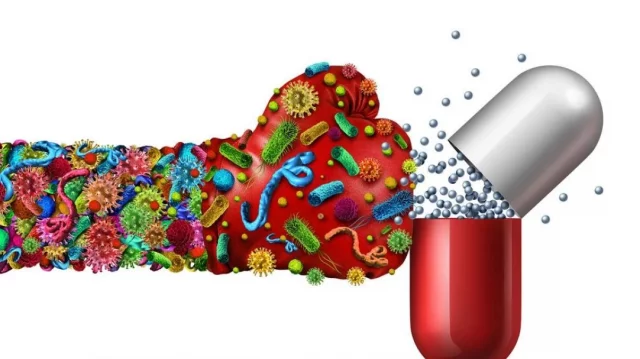In a groundbreaking study conducted by the University of Basel and University Hospital Basel, the persistence of antibiotic-resistant bacteria within the human body has been unveiled, posing a substantial threat to public health. This research, published in Nature Communications, sheds light on the intricate challenges faced when combating diseases caused by bacteria that have developed resistance to antibiotics.
The Ongoing Battle: Antibiotics vs. Resistant Bacteria
As antibiotics lose their efficacy, individuals with pre-existing conditions find themselves in a perilous situation, facing repeated infections that can last for years. The study, led by Professor Sarah Tschudin Sutter’s research group, emphasizes the heightened risk for those with conditions such as pneumonia, urinary tract infections, and sepsis.
Certain bacteria, notably Klebsiella pneumoniae and Escherichia coli, have evolved to break down beta-lactam antibiotics, rendering them ineffective. Once these resistant bacteria colonize a patient’s body, they persist for an extended period, as revealed by DNA analysis conducted over ten years on more than 70 individuals.
A Decade-Long Insight: Persistence and Adaptation
The research delved into a significantly longer timeframe than previous studies, concentrating on older individuals with pre-existing conditions. The primary focus was to understand how resistant bacteria change within various parts of the body over an extended period.
DNA analysis indicated a swift initial adaptation of bacteria to the colonized parts of the body, followed by minimal genetic changes. Astonishingly, the resistant bacteria could still be detected in patients up to nine years later. Dr. Lisandra Aguilar Bultet, the study’s lead author, highlights the critical role these individuals play as reservoirs for pathogens, causing not only repeated illnesses for themselves but also acting as potential sources of infection for others.

Transmission of Resistance: A Disturbing Discovery
The study revealed another alarming aspect – in some patients, bacterial strains of the same or different species shared identical genetic mechanisms of resistance. This sharing occurred through mobile genetic elements, such as plasmids. The likely explanation is the transmission of these elements between bacterial strains.
While hospitals implement protective measures for patients previously infected with resistant bacteria, the challenge remains in reducing the risk of pathogen transmission in everyday life. The study emphasizes the importance of understanding bacterial genetic diversity and its evolution in individual patients over time. This knowledge serves as a valuable foundation for future research to identify factors correlating with the duration of colonization and the progression from colonization to infection.
Implications for Treatment and Future Research
“This is crucial information for choosing a treatment,” explains Professor Tschudin Sutter. The risk of standard antibiotics failing to work in subsequent treatments for individuals previously infected with resistant bacteria raises concerns about the effectiveness of future interventions. The study’s findings underscore the need for more targeted and personalized approaches to combatting antibiotic-resistant infections.
In conclusion, the persistence of antibiotic-resistant bacteria within the human body poses a significant threat to public health. The study’s revelations about the prolonged presence of these bacteria, the risk of transmission, and the challenges in treatment selection highlight the urgency for continued research and the development of innovative strategies to address the growing concern of antimicrobial resistance.
